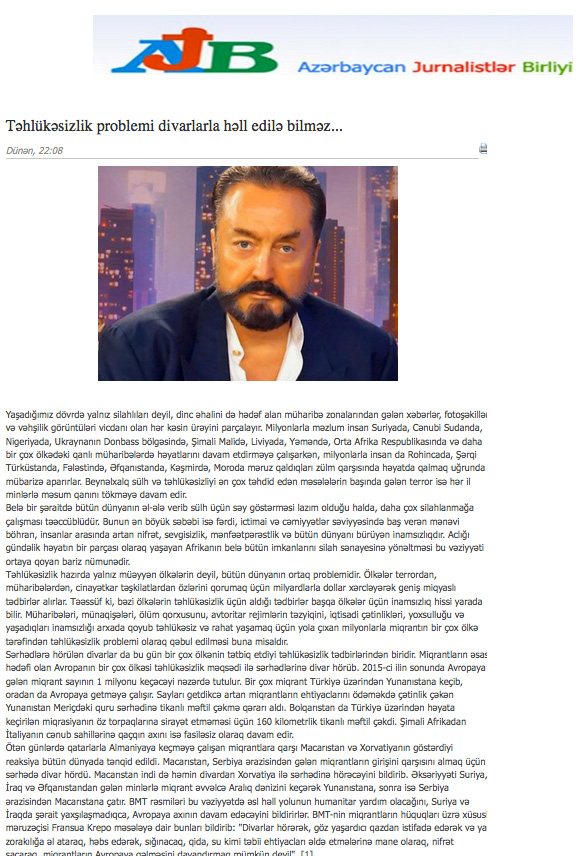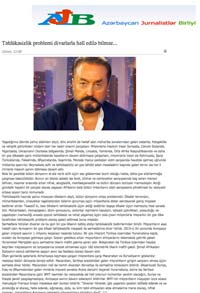
The news portal based in Azerbaijan, Gündelik Info, publishes Harun Yahya articles.
http://gundelik.info/index.php?newsid=4295
http://www.harunyahya.com/en/Articles/207870/how-much-justice-is-there



The news portal based in Azerbaijan, Gündelik Info, publishes Harun Yahya articles.
http://gundelik.info/index.php?newsid=4295
http://www.harunyahya.com/en/Articles/207870/how-much-justice-is-there